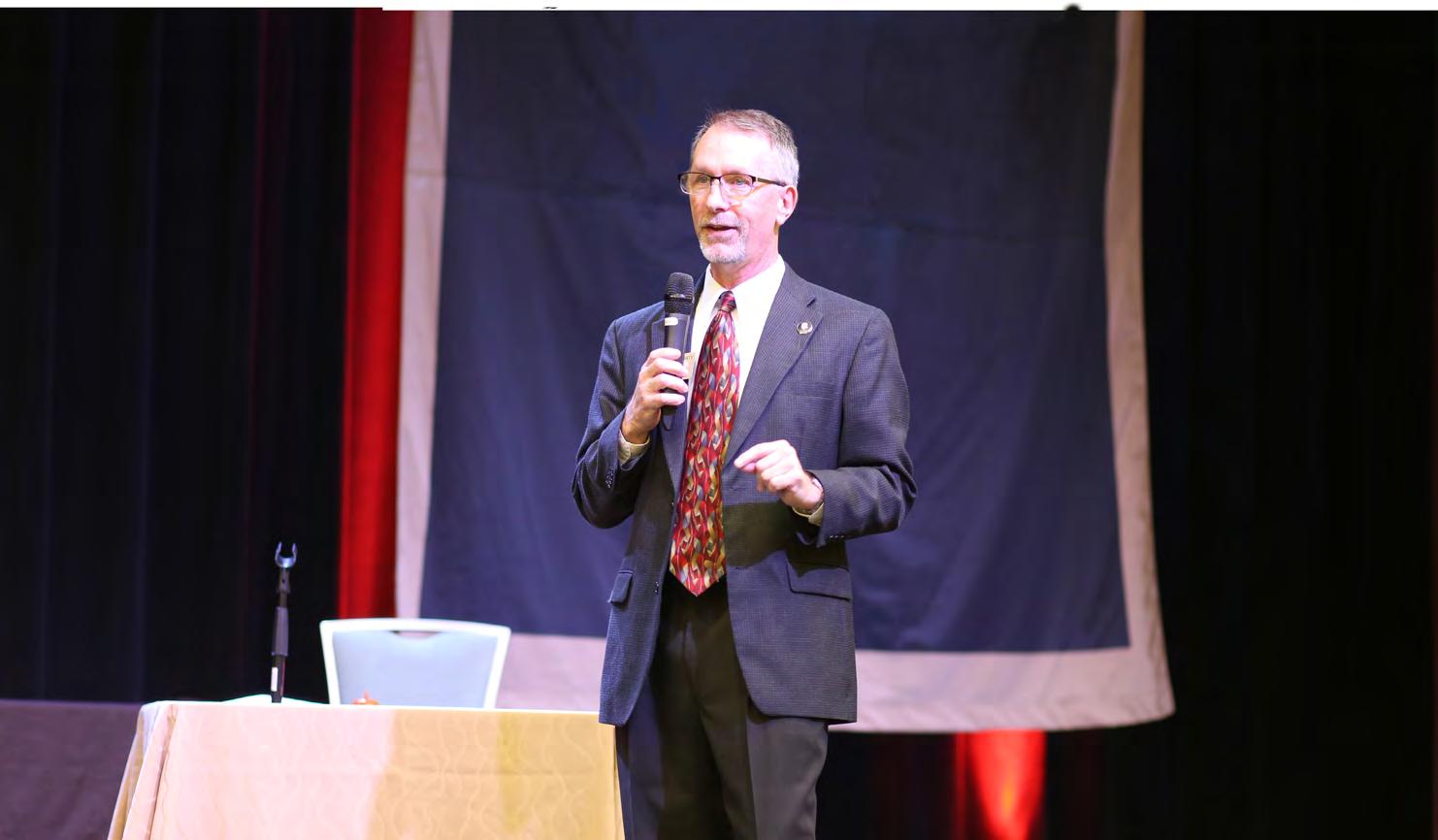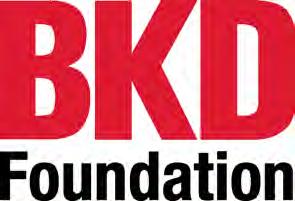
2 minute read
BKD Foundation
from 2021 Giving Guide
by Heather
Family Philanthropy
by Dan Prater
Advertisement
Teaching children the importance of community involvement and giving back is essential. Parents work hard to make sure their kids get a proper education so they can grow up to be productive members of society. Beyond the importance of writing, science and math, civic engagement and philanthropy are key to success.
Philanthropy Starts Early Trends in Giving
Families are rethinking how they organize their philanthropy. Years ago, most family foundations were connected to estates and the wishes of founders. The focus of giving was often connected to religious institutions or an alma mater. Today’s donors are more outcome based and are challenging legacy notions. They are looking for measurable impact.
Compassion and a desire to help others are learned at an early age. Research shows that around two years of age, children start to display genuine empathy, understanding how other people feel. A 2011 study (van Deth) demonstrated how the basic social concepts formed in children before adolescence remain stable throughout adulthood. Like most parenting, lessons are better “caught” than “taught.” Parents who model generosity and talk about the importance of giving back help their children to be involved in their communities. Parents can encourage critical thinking by teaching children the root causes of important issues and presenting ways to take action.
Family Foundations
Establishing a private foundation is a great way for families to support the people, places or things that are most important to them. The decision to focus giving around a specific cause or geographic region is a great way to carry on a family name and reputation. Family foundations derive their funds from members of a single family. Members of the family often serve as board members and play an important role in deciding how the funds will be dispersed.
Change in Focus
Over the past few years, many foundations have moved beyond “How can we help individuals?” to “How can we change the system?” at a policy level. More expansive in view than simply grant making, this often includes hands-on advocacy and scaling impact. Another shift is in distribution. There is movement away from arbitrary payout to responsive payout— making decisions based on needs and opportunities. Also, families are moving beyond traditional use of one vehicle to incorporating multiple vehicles to accomplish their objectives. While traditional grant making is a powerful tool, some families are now incorporating donor-advised funds, C4 entities, LLC structures and impact investing. Whatever methods are used, families can work together to help create healthy individuals and communities. This article is for general information purposes only and is not to be considered as legal advice. This information was written by qualified, experienced BKD professionals, but applying this information to your particular situation requires careful consideration of your specific facts and circumstances. Consult your BKD advisor or legal counsel before acting on any matter covered in this update.
BKD CPAS & ADVISORS
ADDRESS
910 E. St. Louis St., Suite 200 Springfield, MO 65806
PHONE
417.865.8701
WEBSITE bkd.com
TOP EXECUTIVES
Gary Schafer, Managing Partner
MISCELLANEOUS:
BKD Foundation bkd.com/about-us/bkd-foundation











